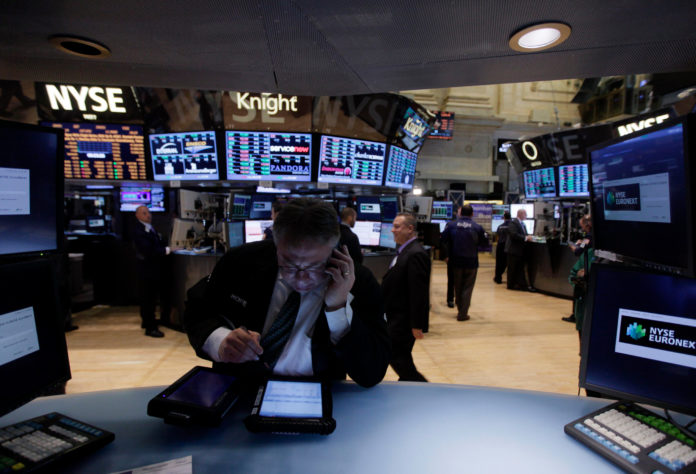
NEW YORK – U.S. stocks fell, after benchmark indexes climbed to record levels last week, even as government data showed retail sales unexpectedly rose in April.
The Standard & Poor’s 500 Index lost 0.2 percent to 1,629.76 at 9:33 a.m. in New York.
“April’s retail sales report is another example of a generally weak report that is better than expected, so it’s perceived to be a positive,” Jim Baird, who helps manage about $8 billion as the Kalamazoo, Mich.-based chief investment officer at Plante Moran Financial Advisors, said in an email to clients. “You’re still left with limited growth in sales since the beginning of the year.”
The 0.1 percent increase in U.S. retail sales followed a 0.5 percent decline in March, Commerce Department figures showed today in Washington, D.C. The median forecast of economists surveyed by Bloomberg called for a 0.3 percent drop. The figures may prompt economists to forecast spending this quarter will cool less than previously projected as Americans overcome a January increase in the payroll tax.
The S&P 500 rallied to a record on May 10, capping a third week of gains and extending its advance so far this year to 15 percent. U.S. stocks climbed last week as companies from Walt Disney Co. to DirecTV beat earnings estimates and central banks worldwide stepped up monetary stimulus to boost growth.
“It’s obvious that this market has got legs, the question is whether the economy is going to grow some legs to support stocks going forward,” Frank Braddock, senior portfolio manager with the Braddock Group of JHS Capital Advisors, said by phone from Columbia, S.C. JHS oversees about $3.4 billion. “There’s a definite psychological bias to the upside.”












